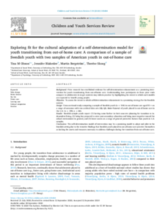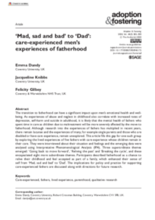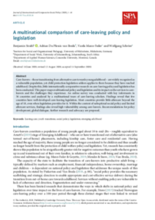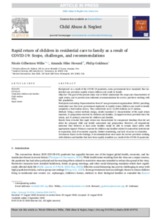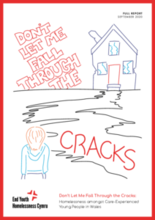Displaying 251 - 260 of 991
Prior research has established evidence for self-determination enhancement as a promising intervention for youth transitioning from out-of-home care. The purpose of this study was to assess the extent to which self-determination enhancement is a promising strategy for the Swedish context.
Based on three waves of semi-structured interviews, this longitudinal qualitative study aims to understand the transition from out-of-home care (OHC; foster care, residential care) to independent adulthood, for a group of Swedish care leavers aged 16 to 20 years.
This article explores the lived experiences of five fathers with care experience whose children remain in their care.
This paper maps multinational policy and legislation and its impact on the services to careleavers and the challenges they experience.
The SOLID study aimed to investigate the feasibility of a definitive randomised controlled trial, comparing two behaviour change interventions to reduce risky substance use (illicit drugs and alcohol), and improve mental health, in young people in care.
This paper aims to describe the experiences of youth preparing to age out of cluster foster care in South Africa.
The goal of the present study was to better understand the scope and characteristics of rapid return, and to provide data-informed recommendations for service providers working with this population.
This study examined how custodial grandmothers navigated the process of their grandchildren being reunified with a biological parent.
This report is based on the voices and experiences of care experienced young people who have been, or are currently, homeless across Wales. The aim of this research is to amplify these young people’s voices to highlight the challenges they have faced when homeless and the need for reform of systems which have failed to prevent their homelessness.
The present study uses concept mapping as an exploratory method, to identify themes that seem to be used by two groups of professionals in their judgement and decision making on reunification.

